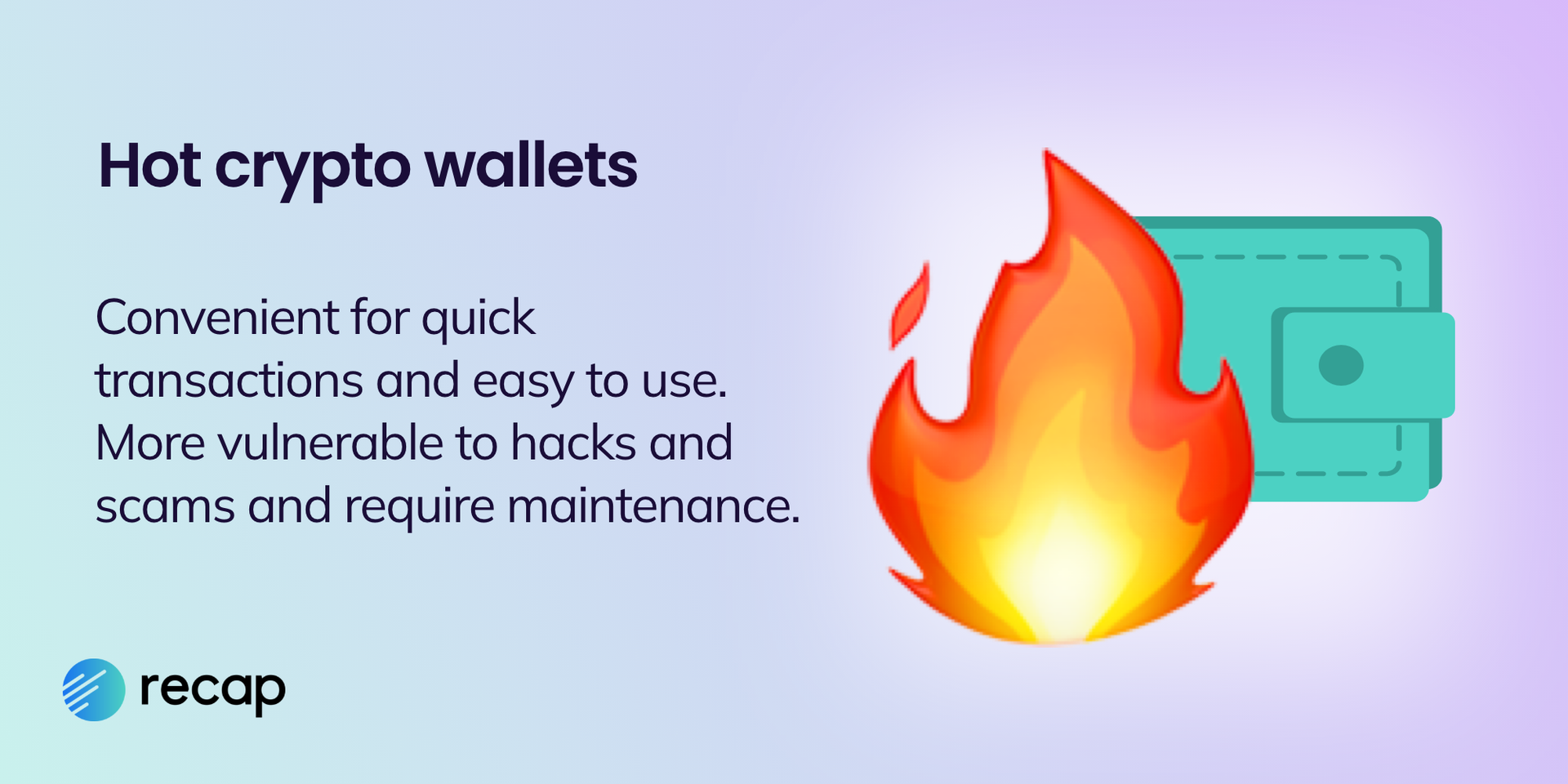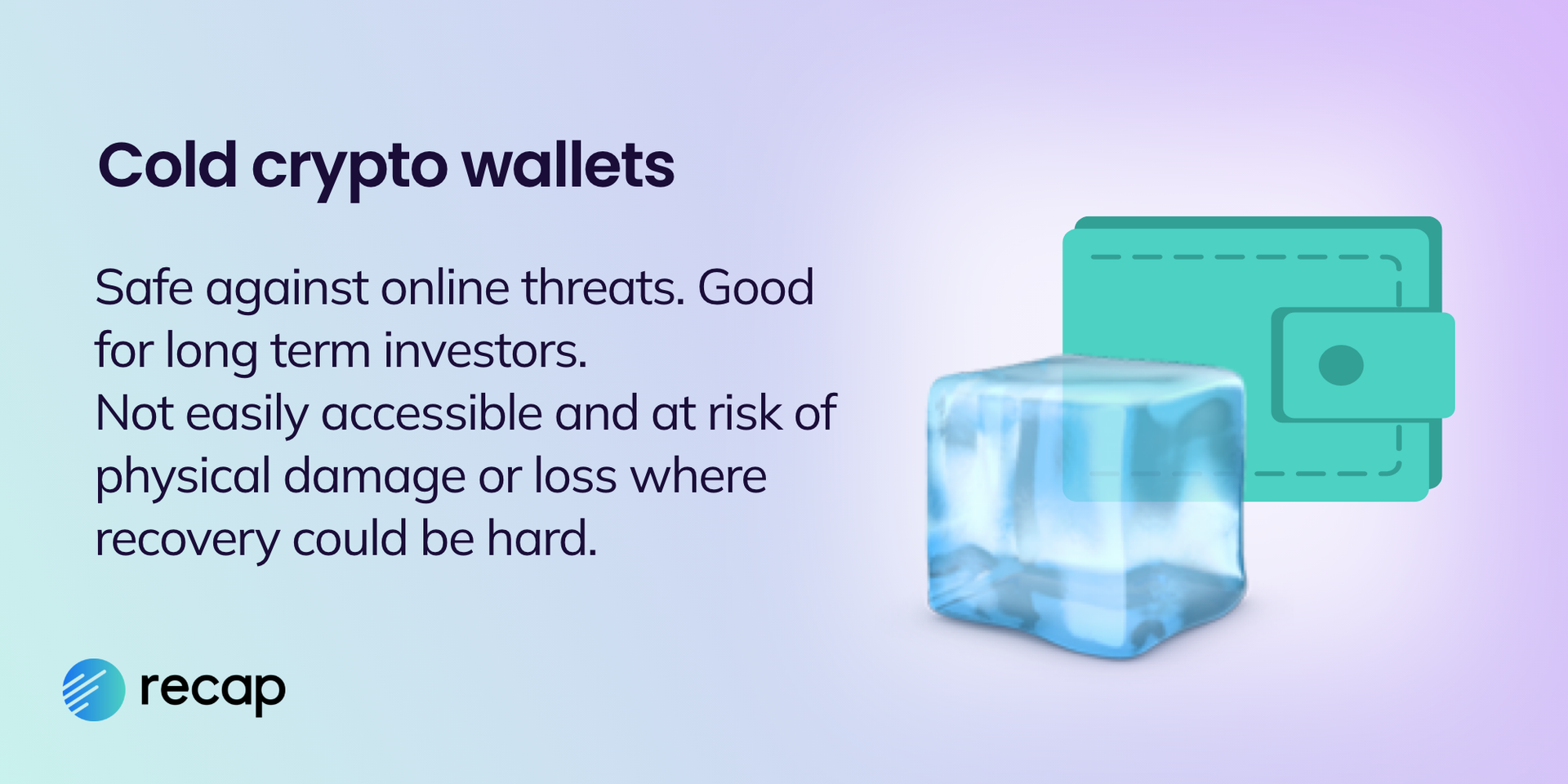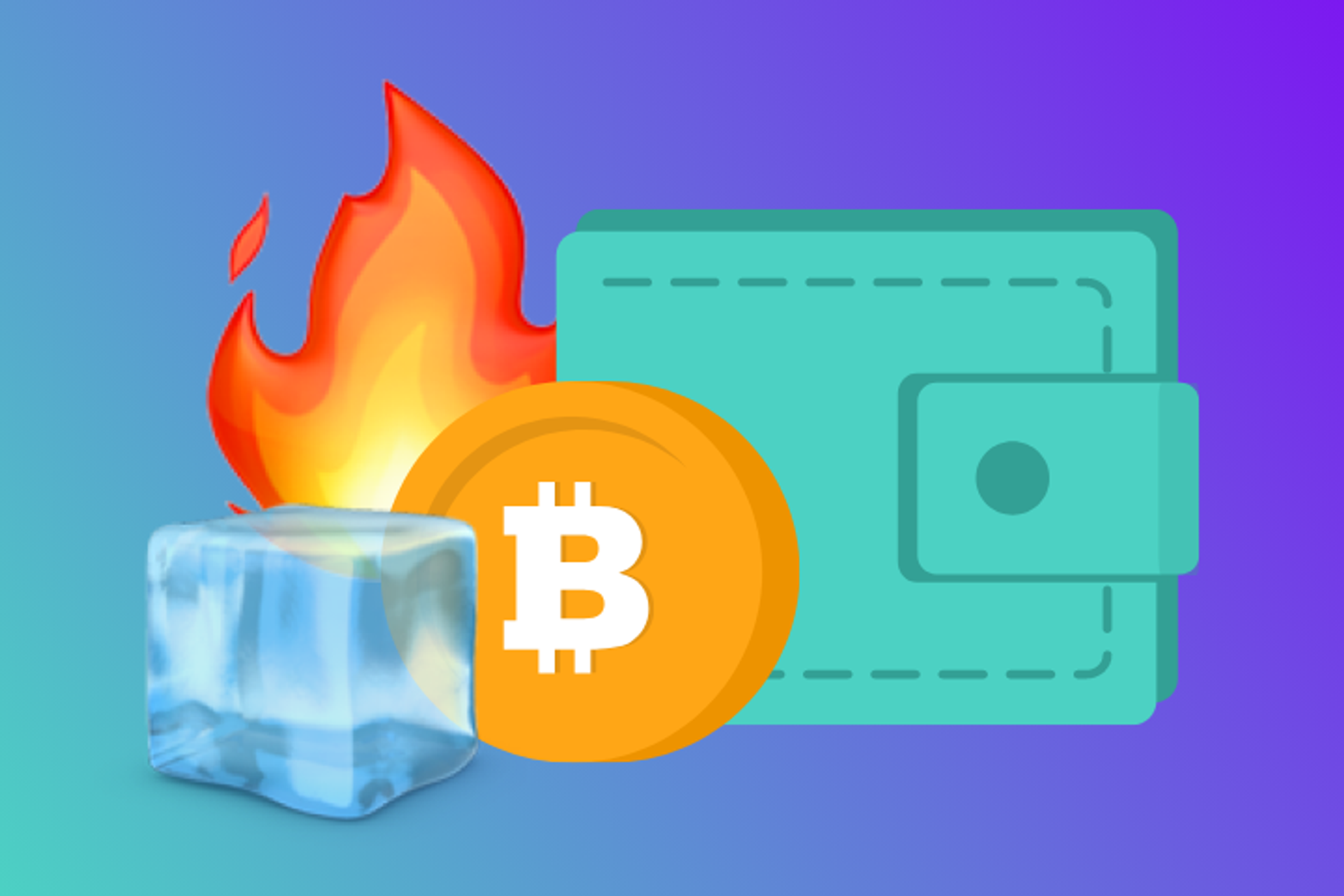
In the crypto world, safeguarding your digital assets is paramount. Hot and cold wallets are your allies in this - each serves its purpose with unique features and vulnerabilities. In this article we look into both types of crypto wallet, evaluating the pros and cons to help you determine which is best for you.
The difference between hot and cold wallets
Hot and cold wallets safeguard your public and private keys, the essential components for your crypto transactions, but the main difference is their internet connection. Hot wallets are connected to the internet making transactions easy, while cold wallets are offline, offering better security. Choosing the most appropriate wallet depends on your crypto holdings, security preference, and how quickly you need access to your funds.
Hot wallets

Hot wallets are akin to your everyday wallet - handy and always ready to go. They run on devices with internet connections like phones or computers. This makes trading fast but may expose you to online threats. Hot wallets are most convenient for on the go and active crypto traders, popular options are Exodus, Trust Wallet, Coinbase Wallet and Metamask.
Types of hot wallets
There are different types of hot wallets:
- Mobile wallets: an app installed on a smartphone that stores cryptocurrency keys and allows you to manage your assets on the go. Mobile wallets combine convenience with relatively good security features, such as biometric authentication. However, they can be at risk if the phone is lost, stolen, or compromised by malicious apps.
- Web-based wallets: or online wallets, are a service provided by a website that stores your cryptocurrency keys on its servers. It offers the highest level of convenience, enabling access from any internet-connected device, however, is also the most vulnerable to hacking, phishing attacks, and online threats, as the keys are stored online and managed by a third party.
- Desktop wallets: a software application that stores your cryptocurrency's private keys on your personal computer. It offers a balance between convenience and security, allowing you to manage your crypto assets directly from your desktop. While more secure than online wallets, they are still vulnerable to threats if the computer is connected to the internet or infected with malware.
Pros of using hot wallets
- Accessibility: Convenient for quick, every day transactions.
- User-friendly: Easy to navigate and good for beginners.
Cons and risks associated with hot wallets
- Security risks: Hot wallets are vulnerable to hacks and phishing scams.
- Maintenance: There is a need for regular updates and strong security practices to avoid online threats.
- Device dependence: Losing your device can complicate access, and a long recovery process awaits.
Cold wallets

Cold wallets are physical devices, like USB drives or even paper, keeping your crypto offline. They require connection, through a cable or a unique QR code, or manual input to interact with your online account ensuring your private key stays far from unauthorised access. Cold wallets are less convenient than hot wallets but offer superior protection making them ideal for long-term holders. Popular hardware cold wallets include Ledger and Trezor.
Types of cold wallets
- Hardware wallets are a physical device that stores your cryptocurrency private keys securely offline. They offer enhanced security by keeping the keys away from internet-connected devices and potential online threats. Transactions are made by connecting the wallet to a computer or smartphone, often requiring physical confirmation on the device, adding an extra layer of security.
- Paper wallets are another type of cold wallet where the public and private keys are printed or written on a piece of paper. It's a secure way to store your keys offline, away from digital threats. To use or transfer the cryptocurrency, these keys must be manually entered or scanned from the paper.
Pros of using cold wallets
- Security - because the wallet is offline your assets are safeguarded against online threats.
- Suitable for long-term investors, especially those with significant holdings.
Cons and potential drawbacks of cold wallets
- Accessibility - not the most convenient option for day traders
- Physical risks like damage, theft or just misplacing it - the physical world is full of hazards and the recovery process may not be simple or even possible.
Which crypto wallet is right for you?
Your crypto journey dictates your choice of wallet. Consider how accessible you need your crypto to be and the value of your cryptoassets. Frequent trading favours hot wallets. Long-term HODLer? Cold wallets provide peace of mind. For the best of both worlds, mix and match - keep your trading funds hot and savings cold.
Best practices for managing multiple crypto wallets
Managing multiple wallets can be overwhelming, but there are benefits. Here are some important things to consider:
- For wallet security use strong passwords and two-factor authentication. Keep your software updated and regularly back up your wallet data.
- Use different wallets for their strengths - hot wallets are more convenient for trading and usually free. Cold wallets offer more protection but are less accessible and often require you to purchase a device so are good for storing high value assets.
- Distribute your assets across wallets to reduce the risks of losing your entire portfolio if a wallet is breached.
- Analyse your crypto investment strategies by using different wallets for different activities. For example, see how long-term investments grow in a cold wallet, and keep track of trading and staking activity in different hot wallets.
- Keep track of all your cryptoassets by using software like Recap. We link with hot wallets like Metamask and cold wallet data via CSV. This makes managing your portfolio and taxes easier. Find out more about our wallet support on our integrations page.
Sign up to Recap today
Recap connects with online wallets like Metamask and Binance Smart Chain and also lets you import CSV data for hardware wallets like Ledger and Trezor. It's stands out as the only solution with end-to-end encryption. This feature letting investors calculate taxes privately using our desktop app. Need help with crypto taxes? Check our crypto tax guide. Ready to start? Try Recap for free and simplify your tax calculations.
